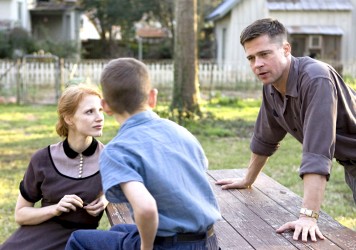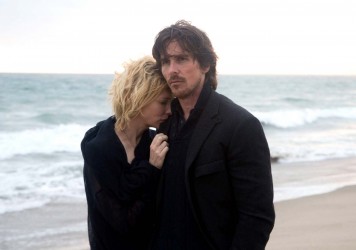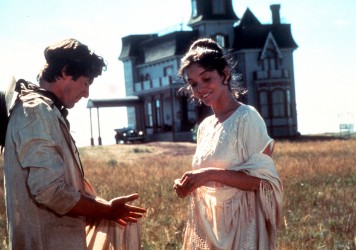Don’t believe the anti-hype: Terrence Malick’s fractured modern love poem is a sensual marvel.
During the press tour for his award season hot cake Argo, Ben Affleck – clearly off his rocker on misfired critical sunbeams – cockily lamented that he had starred in the only bad Terrence Malick movie.
Dearest Ben, if you ever, in just a single frame of your directorial career, manage to match the kind of exquisite formal refinement that To The Wonder blithely exhibits as a cinematic given, then we’ll maybe let that one slide. Maybe.
It’s been referred to as a ‘B-side’ to The Tree Of Life’s operatic prime cut, but that description infers that To The Wonder is some kind of funky doodle not deemed good enough as a standalone work. No, these two films operate better as a monumental double A-side, both evolved out of the same miasmic primordial yolk and constructed with an insouciant rigour that’s bound to leave the righteous slack-jawed in awe.
While Tree Of Life presented Earth as a place of rhapsodic enchantment, To The Wonder gives us a modern-day world on the cusp of devastation. Taking place among the prefab tract houses of a dusty Oklahoman berg where every hour is magic hour, To The Wonder is less interested in the consolations of spirituality and the dynamics of love than it is the emotional barricades that prevent us from living a life of sublime indifference.
Affleck essays Neil, a commitment-shy environmental health officer whose internal anxieties prevent him from truly accepting childlike Russian-French nymphet Marina (Olga Kurylenko) into his cold heart. A patina of dread and disquietude – both spoken and concealed – encases the action. Characters grapple with metaphysical conundrums and paradoxical homilies to come to terms with the preciousness of existence. They even begin to realise that the universal constant of romantic relationships may just be losing its place at the top of the chain of human responsibility.
With this more insidiously dour and subtly opaque affair, Malick again acts as head curator of a luxuriant flick-book of divine images, all of which have been immaculately beat-matched via the breathtaking, elliptical editing. His partner in cinematographic crime, Emmanuel ‘Chivo’ Lubezki, locates tumbling cosmic depths in the most mundane of moments: a meadow of ambling bison mutates into a vision of chaos and claustrophobia; the shifting sands near Mont Saint-Michel; a night-time visit to a washing-machine outlet becomes a trial of enforced domesticity; Marina euphorically flits, jerks and prances, her façade of innocence a physical manifestation of the idea that Neil is unable to get close to her, to consume her.
Weaving in tandem to this is the story of a priest (Javier Bardem) who’s straying from the flock. He surveys the lives of impoverished locals just as Neil finds toxic chemicals leaking from local industrial plants. To The Wonder ponders how different life might be if we could comprehend the awesomeness of a world we take for granted. We might wrestle with our own doubts about this film, but how fitting is that for a film about doubt?
Its utter earnestness leaves it wide open to criticism, but to bemoan the superficial quality of the performances, the script or the story would be to miss the point of the film entirely. Malick doesn’t make films anymore. He builds cathedrals.
Published 21 Feb 2013
The negative buzz could be heard far and wide from its Autumn festival premiere.
Erm, and what’s the problem exactly? This is cinema sent from the heavens.
Five viewings should just about cover it.

A glorious ode to the improbability of existence which asks us to cherish the simple processes of living and loving.

This glistening pearl from Terrence Malick is a heady, transcendent treatise on love.

By Sophie Brown
Terrence Malick observes the calm and the chaos that fluctuate beneath the unpredictability of life.